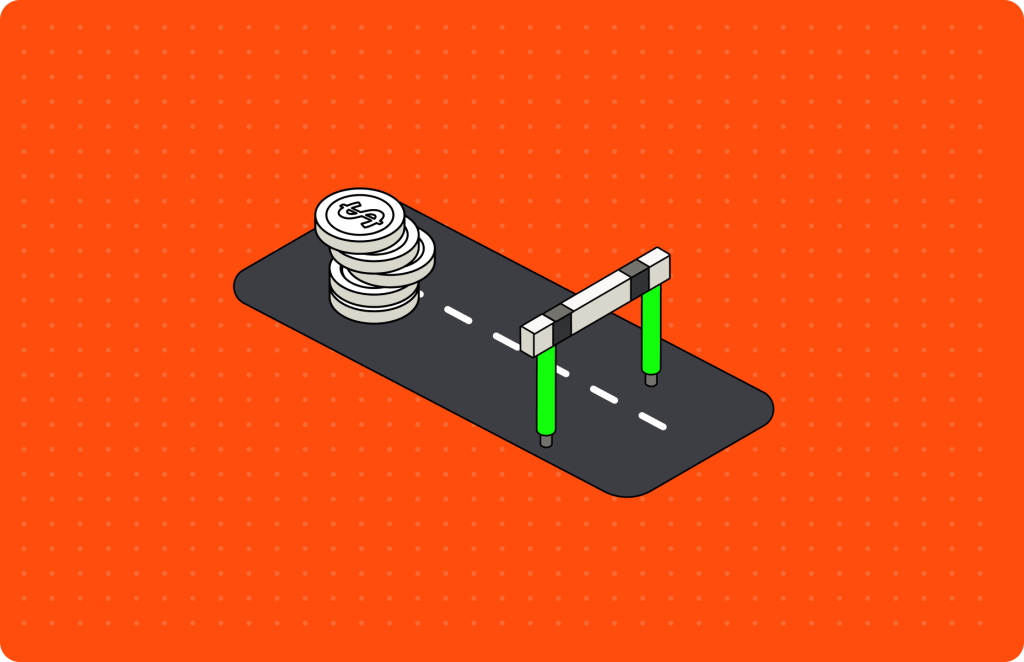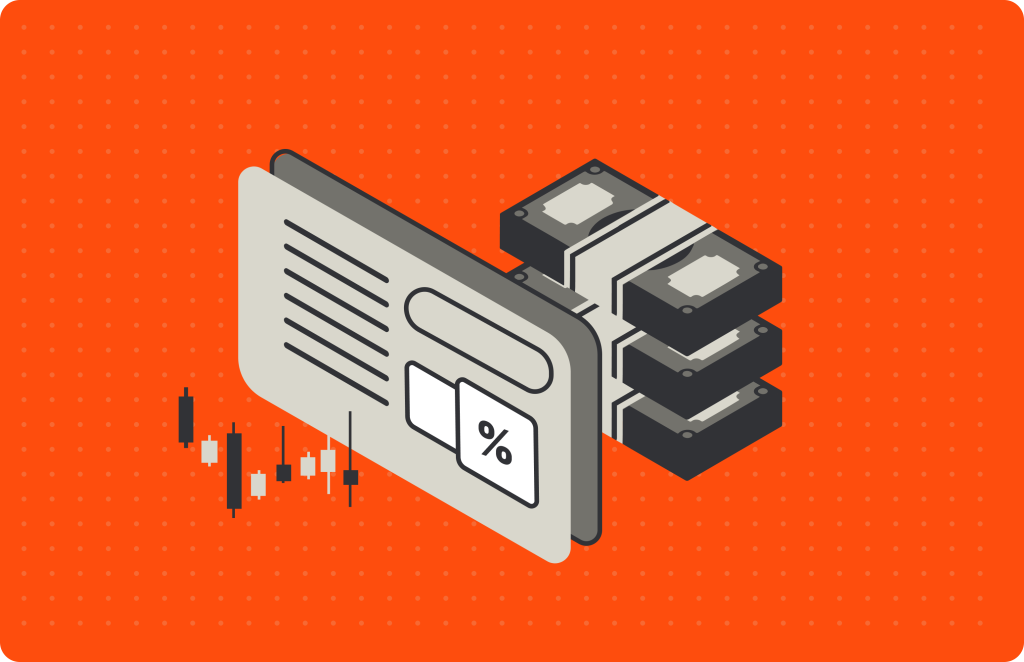Brokerage Business
8 minutes read
Mar 19, 2025
What is Forex CRM and How Does It Work?
The Forex market is the largest, most lucrative, and the most liquid market among all others. With millions of trade transactions, brokers might find themselves lost in figuring out thousands of clients and their transactions. In such an environment, staying organized and providing high-quality customer service can be a real challenge. That’s where the Forex Customer Relationship Management (CRM) system comes in handy.
Forex CRM is the foundation of a brokerage’s operations and is more than just a database of customer data. Brokers can use it to manage trading activity, track leads, expedite onboarding, and guarantee adherence to financial regulations. Brokers who lack a strong CRM run the risk of losing customers to competitors who provide a more seamless service.
In this article, we’ll explain what a Forex CRM is, how it operates, and why it’s essential for any brokerage with plans for growth and success. Gaining a grasp of Forex CRM can help you increase productivity, retain clients, and expand, regardless of your level of experience as a broker.
What is Forex CRM?
Wouldn’t it be chaotic to operate a Forex brokerage without a solid approach to client management, tracking trades, or compliance assurance? Forex CRM was created for this exact reason. It is a customized system created to assist Forex brokers in growing their business, handling clients effectively, and streamlining operations.
Forex CRM is designed specifically for Forex brokers, in contrast to typical CRM software, which is used for sales and customer management across a variety of sectors. In addition to storing customer contact information, it also tracks deposits and withdrawals, automates KYC verification and onboarding, interfaces with trading platforms, such as MT4 and MT5, and assists in managing connections with Introducing Brokers (IBs).
Forex CRM is utilized by several teams within a brokerage:
- Sales: To monitor leads and turn them into active traders.
- Customer Service: To help customers with problems.
- Compliance Officers: To make sure that AML and KYC rules are followed.
- Finance: To keep an eye on transactions and prevent fraud.
Fundamentally, a Forex CRM serves as the focal point of brokerage operations, guaranteeing efficient departmental communication and improving the client experience in general. Brokers run the risk of lost revenue, inefficiencies, and compliance problems without it.
After learning what a Forex CRM is, let’s explore some of its main characteristics and how they will help you maintain a profitable brokerage.
Key Features of a Forex CRM
More than just a database, a robust Forex CRM is the backbone of a successful brokerage. A strong Forex CRM automates duties like conducting transactions, managing new leads, maintaining compliance, and freeing up brokers to concentrate on business expansion and trader satisfaction.
We’ve outlined some of the most essential features of a Forex CRM:
Client Onboarding and KYC Compliance
A trader must pass Know Your Customer (KYC) and Anti-Money Laundering (AML) checks before they may begin trading by:
- Gathering and confirming documentation, such as passports and proof of address,
- Ensuring regulatory compliance,
- Accelerating traders’ account approvals.
Lead and Customer Management
Every potential trader is a valuable lead. A Forex CRM assists brokers in tracking, nurturing, and turning leads into active traders using the following features:
- CRM-integrated communication tools like chat, SMS, and email,
- Automated lead collection from marketing campaigns and websites,
- Status tracking to determine each trader’s current stage of conversion.
Integration of Trading Platforms
By establishing direct connections with trading platforms such as MT4, MT5, and cTrader, a Forex CRM offers brokers the following benefits:
- Instant synchronization of CRM data and accounts,
- A real-time picture of traders’ activity,
- Insights into risk management.
Tools for Support and Communication
Communication must be efficient and timely to keep traders interested. A Forex CRM provides:
- Automated follow-ups to increase trader retention,
- Integrated email, ticketing, and live chat platforms,
- Chatbots for prompt responses.
Tracking Payments and Transactions
Internal transfers, withdrawals, and deposits can be challenging to manage. A Forex CRM makes it simple with the following:
- Real-time tracking of deposits and withdrawals,
- Smooth interaction with several different payment systems,
- Automated fraud detection alerts.
Multi-Level IB (Introducing Broker)
A brokerage’s ability to attract new traders is greatly aided with Introducing Brokers (IBs) by:
- Monitoring referrals and payouts,
- Automating commission calculations,
- Providing multi-tier architectures for international IB networks.
Reporting & Analytics
A Forex CRM provides brokers with extensive insights via:
- Handcrafted sales and operations dashboards,
- Performance reports for traders and IBs,
- Risk management solutions to reduce exposure.
Now, what makes these features important? In addition to simplifying brokerage operations, a robust Forex CRM promotes expansion, enhances customer retention, and guarantees compliance. Brokers can make better decisions and provide a smooth trading experience by automating important operations and supplying real-time data.
Let’s further examine how a Forex CRM functions in real-time.
How Forex CRM Works
A Forex CRM functions similarly to a brokerage’s command center, organizing client information, automating procedures, and guaranteeing seamless operations. However, how does it operate exactly? Let’s dive deeper into it.
Acquisition & Lead Generation
All brokerages want to draw in new traders. A Forex CRM gathers leads automatically from a variety of sources:
- Email campaigns, Google Ads, and social media leads,
- Website forms: Users registering for live or demo accounts,
- IB (Introducing Brokers) referrals.
To increase the likelihood that they will become active traders, these leads are assigned to sales representatives for follow-up after being recorded and kept in the CRM.
Customer Onboarding & Verification
The traders must authenticate themselves before they may begin trading by:
- Account approval automation: Quicker verification, allowing traders to begin trading sooner,
- Uploading identification and proof of address for KYC (Know Your Customer) verification,
- AML (Anti-Money Laundering) checks: Ensuring regulatory compliance.
Transaction & Payment Tracking
A Forex CRM makes sure that deposits, withdrawals, and cash transfers go smoothly by:
- Identifying suspicious transactions to stop fraud,
- Automating payout requests and withdrawal approvals,
- Linking to several payment gateways like e-wallets, credit cards, and cryptocurrency.
Brokers benefit from this by maintaining hassle-free and safe financial operations.
Constant Customer Service & Involvement
The secret to long-term success is to keep traders interested through:
- Integrated phone, email, and live chat support,
- Individualized trading advice and incentives,
- Automated follow-ups and retention efforts.
Brokers may boost deposits, lower churn, and create enduring partnerships by remaining in touch with traders.
Overseeing Trading Activity
The CRM connects to trading platforms like MT4 and MT5 while a trader is active, giving brokers access to real-time information on:
- Margin levels and account balances,
- Profit and loss monitoring,
- Open and closed transactions.
This enables brokers to keep an eye on trading activity, evaluate risks, and offer tailored assistance as required.
Analytics & Reporting
In addition to managing clients, a Forex CRM offers brokers helpful information such as:
- Trader activity reports to discover traders that are the most lucrative and active,
- Tracking IB performance to know which affiliates are attracting the most customers,
- Analysis of revenue and commissions to see where the brokerage generates the most revenue.
Brokers may improve client interaction, boost revenue, and optimize their strategy with the help of these reports.
Benefits of Using a Forex CRM
Operating a Forex brokerage without a CRM is similar to attempting to operate a race car without a dashboard; you may make progress, but you won’t have the information or control necessary to do so.
A Forex CRM is more than just a tool – it’s revolutionary in a sense that it helps brokers increase income, enhance client relationships, and streamline operations.
Increased Engagement & Client Retention
In Forex trading, retaining existing customers is equally as crucial as attracting new ones. A Forex CRM facilitates the development of strong bonds between brokers and traders by:
- Instant support: Integrated live chat and helpdesk to resolve concerns promptly,
- Retention campaigns: exclusive deals, bonuses, and trading insights,
- Personalized communication – automated updates via chat, SMS, and emails.
Business Growth & Scalability
A Forex CRM expands with your business, regardless of how big or small your brokerage is. It facilitates:
- Multi-brand & multi-language support for global expansion,
- Multi-tier IB management for expanding affiliate networks,
- Tailored integrations with marketing tools, payment processors, and trading platforms.
Choosing the Right Forex CRM
How do you choose the best Forex CRM solution for your brokerage when there are so many options available? Actually, not all CRMs are made equal: some are overly complicated, others are devoid of necessary functionality, and a bad decision might hinder rather than improve your business’s operations.
Here are some essential factors to think about while selecting a Forex CRM to assist you in making the best choice.
Personalization & Adaptability
Since your brokerage is distinct, your CRM should be tailored to meet your demands rather than the other way around. Choose a Forex CRM that allows for customisation, such as:
- Workflows that can be adjusted to match your onboarding, sales, and retention procedures,
- Scalable systems that support your brokerage’s growth as it expands,
- Customized dashboards that show the information most pertinent to your company.
A one-size-fits-all CRM is insufficient – instead, your system should change as your company does.
Security & Compliance
Regulatory compliance is essential in the Forex industry. A secure and compliant CRM includes:
- Automated KYC and AML checks for smooth client onboarding,
- Regulatory reporting tools to guarantee adherence to international financial regulations,
- Secure document storage to safeguard client information.
Support & User-Friendly Interface
Rather than assisting your staff, a complex CRM can slow them down. Choose a system that:
- Provides training materials to help your team make the most of its features,
- Offers prompt customer service for issues,
- Is simple to use and intuitive.
Integration Capabilities
Your trading platforms and a Forex CRM should collaborate to deliver real-time insights. Ensure that the CRM is compatible with:
- Payment gateways for seamless deposit and withdrawal processing,
- Any platform you utilize, such as MT4/MT5,
- Marketing & automation features to improve customer interaction.
Concluding Thoughts
Notwithstanding its many benefits, a Forex CRM has drawbacks. Selecting the appropriate technology, guaranteeing correct integration, giving security first priority, and funding staff training are the keys to overcoming these challenges.
Early resolution of these issues can help brokers optimize their Forex CRM’s effectiveness, profitability, and long-term success.
It’s crucial to pick a CRM that meets the requirements of your brokerage, integrates easily, and can expand with you in the future. Brokers also need to be ready for obstacles, including high upfront fees, complicated integration, and security threats, all of which can be tackled with the correct CRM provider and proper planning.
FAQ
72

Written by Ivan Bogatyrev
Business Development at FintechFuel
Writing about the exciting worlds of iGaming and the brokerage business, breaking down the latest trends and insights. Making complex topics easy to understand, helping readers stay informed and ahead of the curve.
More by authorRead more

Brokerage Business
10 minutes read
Sep 30, 2025
The brokerage industry in 2026 is entering a new phase shaped by technology, regulation and shifting client demands.


